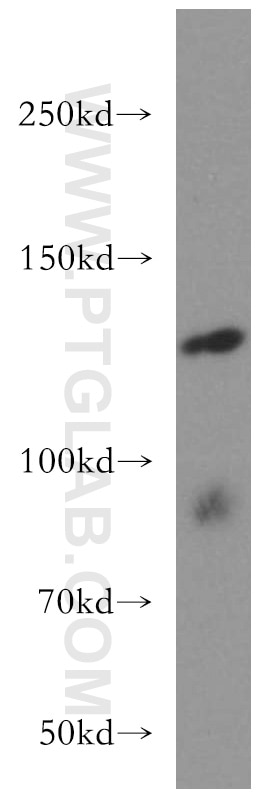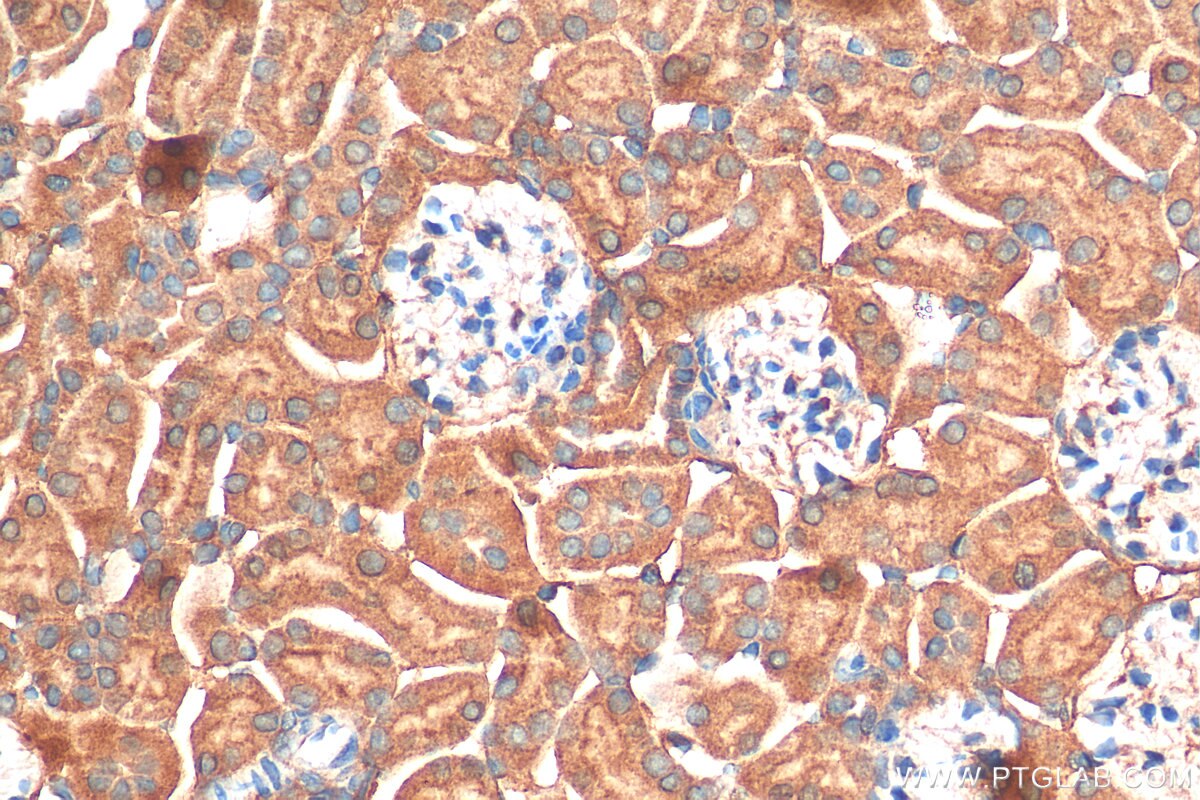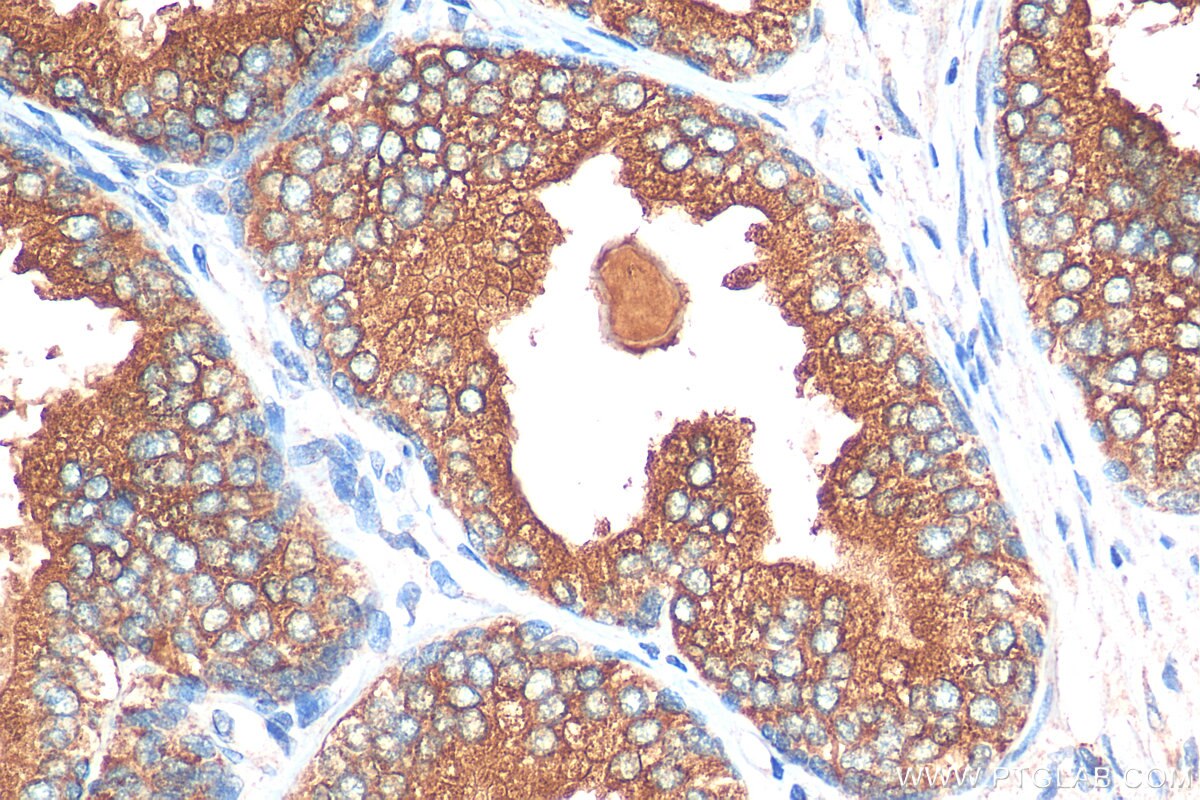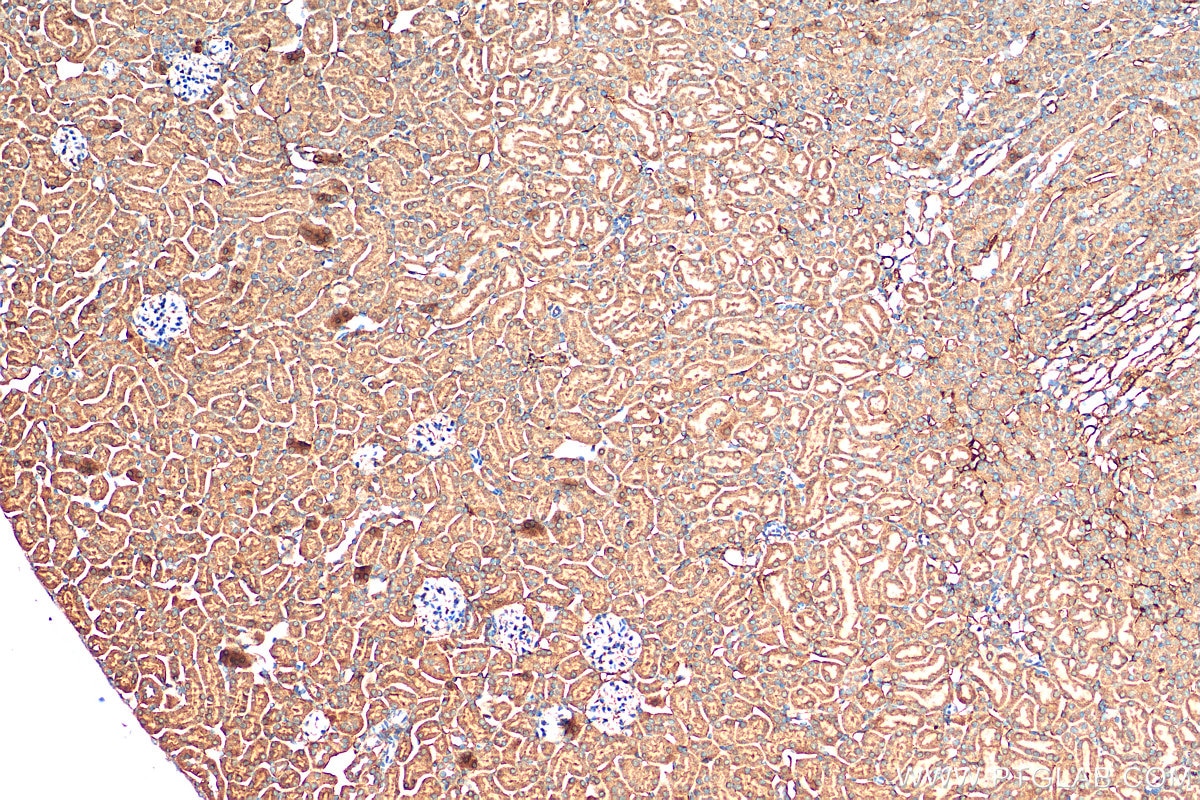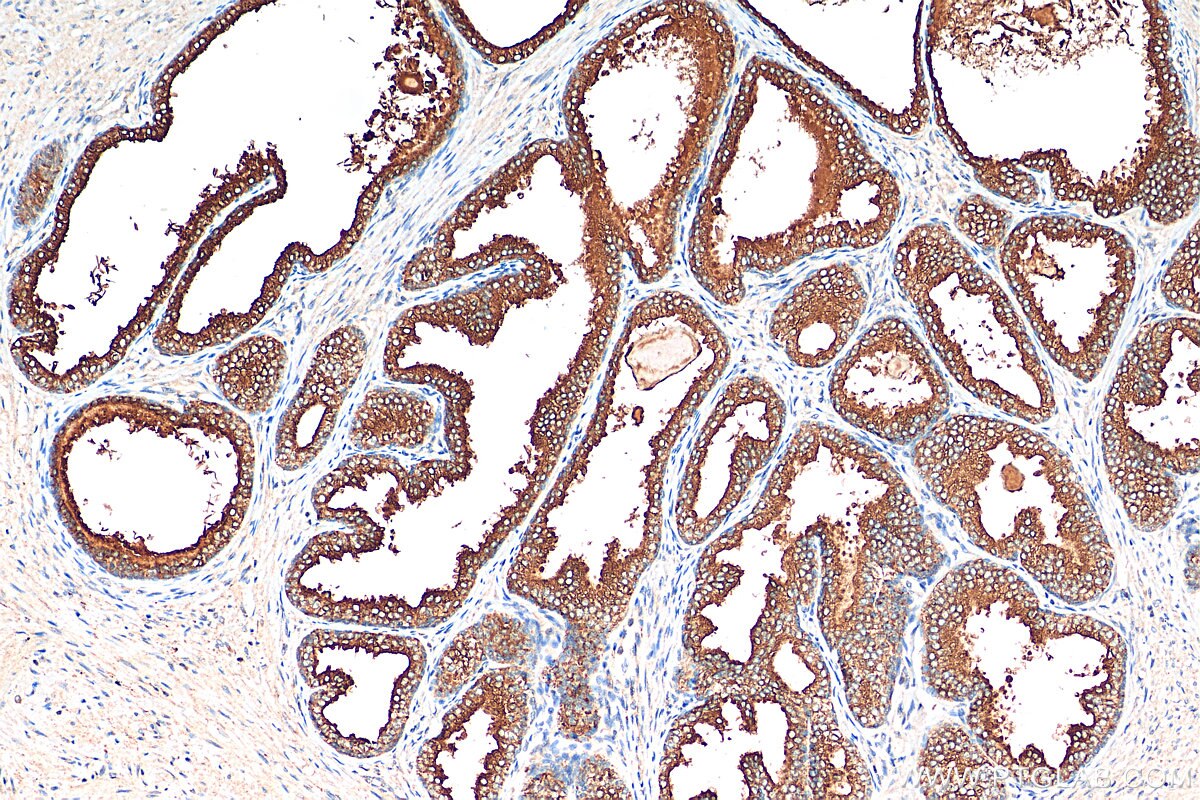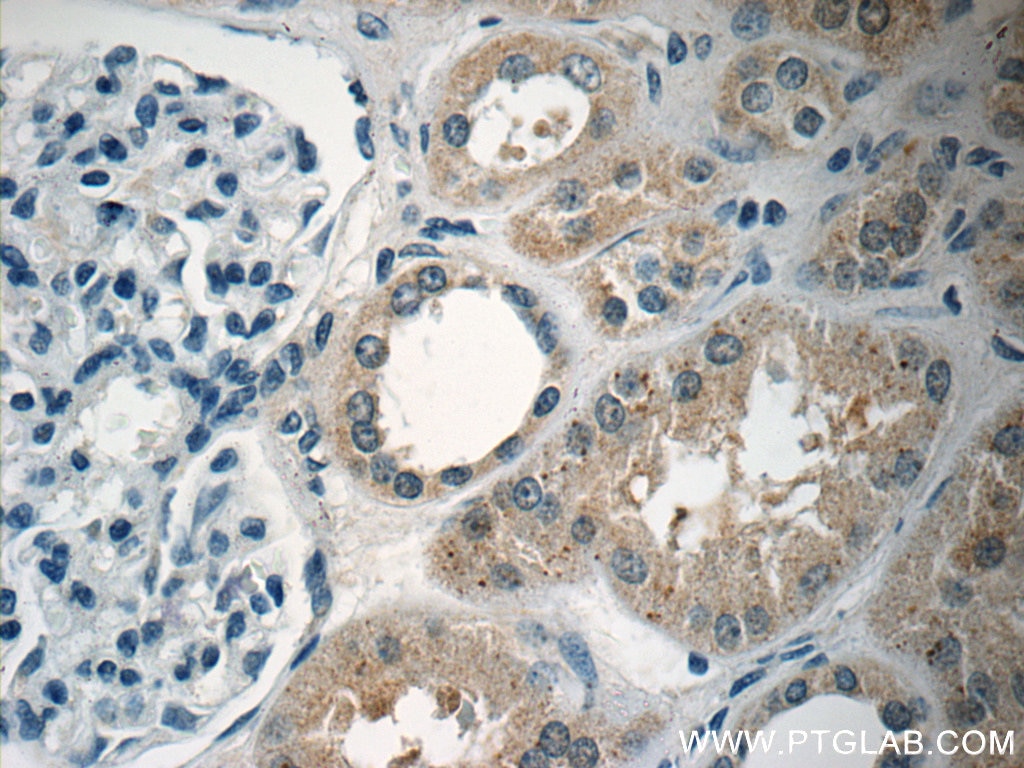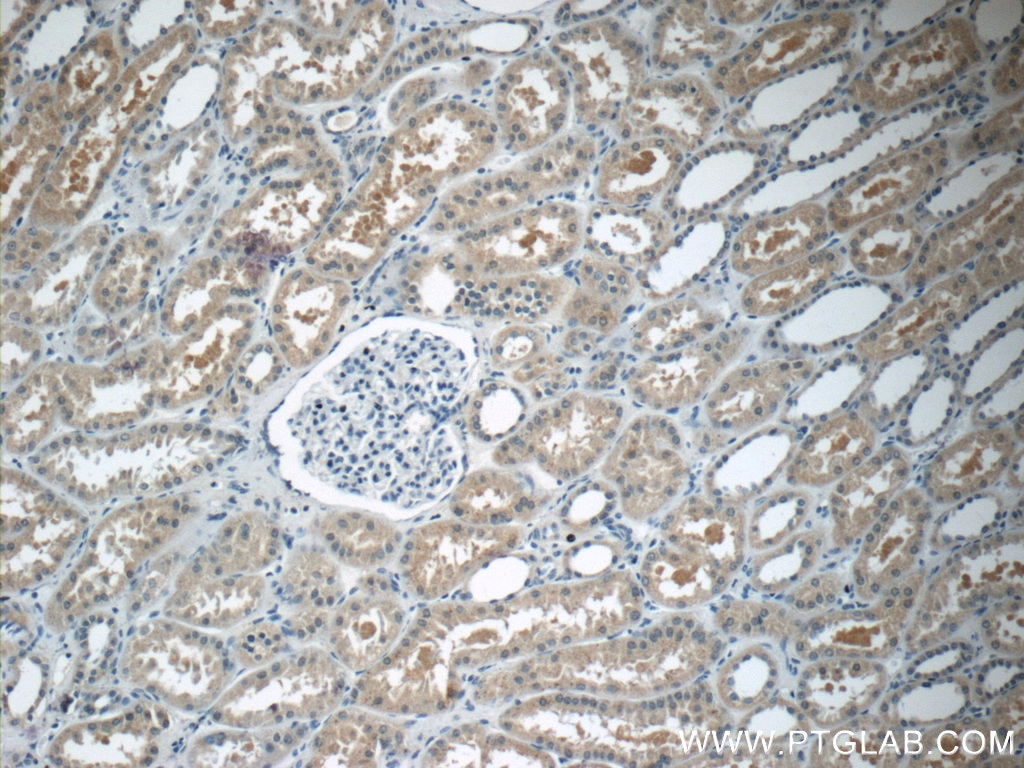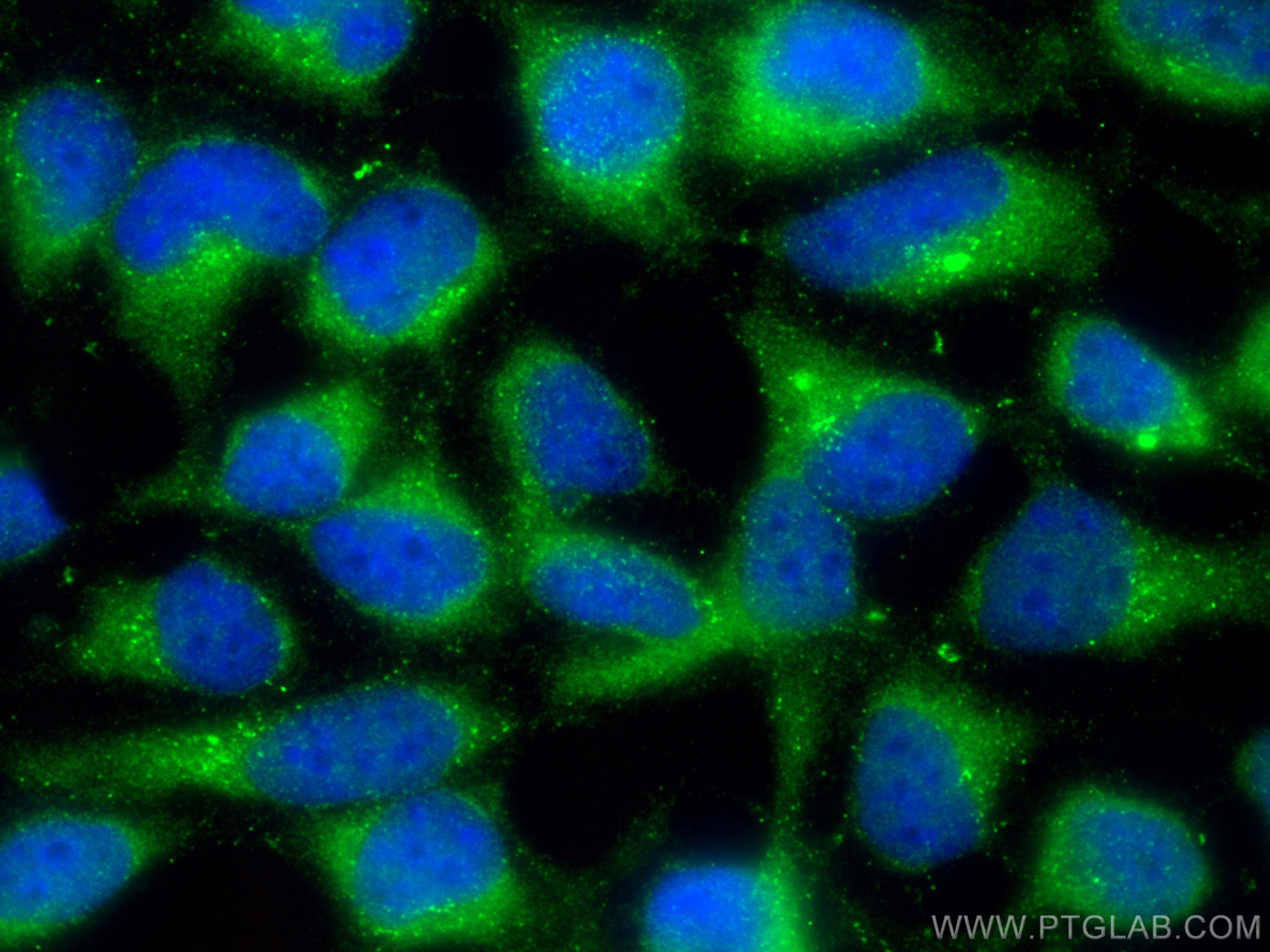ARHGEF18 Polyklonaler Antikörper
ARHGEF18 Polyklonal Antikörper für WB, IHC, IF/ICC, ELISA
Wirt / Isotyp
Kaninchen / IgG
Getestete Reaktivität
human, Maus
Anwendung
WB, IHC, IF/ICC, ELISA
Konjugation
Unkonjugiert
Kat-Nr. : 11243-1-AP
Synonyme
Galerie der Validierungsdaten
Geprüfte Anwendungen
| Erfolgreiche Detektion in WB | Maushodengewebe |
| Erfolgreiche Detektion in IHC | Mausnierengewebe, humanes Nierengewebe, humanes Prostatakarzinomgewebe Hinweis: Antigendemaskierung mit TE-Puffer pH 9,0 empfohlen. (*) Wahlweise kann die Antigendemaskierung auch mit Citratpuffer pH 6,0 erfolgen. |
| Erfolgreiche Detektion in IF/ICC | HEK-293-Zellen |
Empfohlene Verdünnung
| Anwendung | Verdünnung |
|---|---|
| Western Blot (WB) | WB : 1:200-1:1000 |
| Immunhistochemie (IHC) | IHC : 1:50-1:500 |
| Immunfluoreszenz (IF)/ICC | IF/ICC : 1:200-1:800 |
| It is recommended that this reagent should be titrated in each testing system to obtain optimal results. | |
| Sample-dependent, check data in validation data gallery | |
Produktinformation
11243-1-AP bindet in WB, IHC, IF/ICC, ELISA ARHGEF18 und zeigt Reaktivität mit human, Maus
| Getestete Reaktivität | human, Maus |
| Wirt / Isotyp | Kaninchen / IgG |
| Klonalität | Polyklonal |
| Typ | Antikörper |
| Immunogen | ARHGEF18 fusion protein Ag1749 |
| Vollständiger Name | rho/rac guanine nucleotide exchange factor (GEF) 18 |
| Berechnetes Molekulargewicht | 131 kDa |
| Beobachtetes Molekulargewicht | 120-130 kDa |
| GenBank-Zugangsnummer | BC014994 |
| Gene symbol | ARHGEF18 |
| Gene ID (NCBI) | 23370 |
| Konjugation | Unkonjugiert |
| Form | Liquid |
| Reinigungsmethode | Antigen-Affinitätsreinigung |
| Lagerungspuffer | PBS mit 0.02% Natriumazid und 50% Glycerin pH 7.3. |
| Lagerungsbedingungen | Bei -20°C lagern. Nach dem Versand ein Jahr lang stabil Aliquotieren ist bei -20oC Lagerung nicht notwendig. 20ul Größen enthalten 0,1% BSA. |
Protokolle
| Produktspezifische Protokolle | |
|---|---|
| WB protocol for ARHGEF18 antibody 11243-1-AP | Protokoll herunterladen |
| IHC protocol for ARHGEF18 antibody 11243-1-AP | Protokoll herunterladen |
| IF protocol for ARHGEF18 antibody 11243-1-AP | Protokoll herunterladen |
| Standard-Protokolle | |
|---|---|
| Klicken Sie hier, um unsere Standardprotokolle anzuzeigen |
